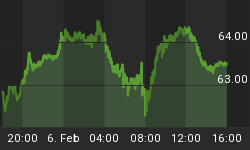If the last couple weeks are any judge, it doesn't look like the stock market is going to crash - at least not yet. Unfortunately, this has hardly stopped the dooms-dayers from predicting a return to the Stone Age. Some of the theories coming out sound an awful lot like Jimmy Carter, just much worse.
In their analyses, many economists (and conspiracy theorists) observe similarities between current economic circumstances facing developed nations like our own with many ancient civilizations. Skeptics specifically point to the fall of great powers, and then relate historical facts that contributed to their demise with the modern world.
The most often example cited is the Roman Empire. Many pundits observe the Roman systems of economics, government, and monetary policy. Historians will note that one factor (of many) that pushed the Roman Empire toward its end was their use of fiat currency. (Fiat currency is money that is not backed by metal value).
The Roman's, for much of their history, used currency (coinage) that was based on the value of its composition metals. Unfortunately, one problem that became totally pervasive in the Roman economy was the debasing of its currency.
In fact, this is the origin of the word debasement, which occurred when individuals (with or without government sanction) altered the composition of coins so they were not worth their intended value. Many coins were shaved, formed by coating less valuable minerals with more precious metals. This is, in part, why the United States' founding fathers made debasement a crime punishable by death.
Many of these historians use the history of Rome as a siren's song for investors to be wary of our current system of economics, and any investments that rely on that system. They instead opt for alternative (read: Armageddon) investments like gold, silver, brass, lead, and gunpowder.
One fact often overlooked by such theorists is the substantial difference in timelines.
There's an old quote that I like which is commonly misunderstood, usually because half of it is missing: "Rome wasn't built in a day..." It's one we all know, a plea for patience and hard work.
The whole phrase, which far fewer people know is this: "Rome wasn't built in a day, nor was its money destroyed overnight." The real lesson from this phrase is that while this once-great empire took tremendous periods of time to grow and develop, it did not decline in the blink of an eye. Its fall, though painful and at times arduous and even violent, was a long-time coming.
Many people conveniently forget that the United States, despite our rapid ascent as a major world power, and our incredible sphere of influence in global policy and economics, is still a young nation. Rome, our prehistoric cousin, according to many modern sages, lasted for millennia, albeit in several forms (first a monarchy, then a republic, an empire, and finally an empire divided).
It has been just over two centuries since the birth of these United States and in the time has grown and prospered, taking its place among the world's greatest nations. However, the history of many great powers, Rome among them, is often broken down into eras, most of which last many centuries, longer than the entire history of our country.
While this certainly does not make the United States infallible by any means, hopefully it serves to put current circumstances in perspective.
The bottom line here is that ever since the beginning of time there has been someone standing on the corner with a sign saying the end is near. In fact, since 1980 it's pretty consistently been Robert Prechter, but thankfully he at least takes the time to shave.
So, for this week, it looks like the markets are going to survive. Certainly these are the times that try men's souls; but then again, all times try men's souls. There are always problems facing the world, they simply change nature and shape.
This week BP has [supposedly] made big strides in re-capping the oil leak in the Gulf. Companies are beginning to spend money without burdening themselves with unnecessary debt. The velocity of money is picking up in the US. Maybe - hopefully - things are starting to pick up again. If this is so, the markets will certainly follow suit in due time.















